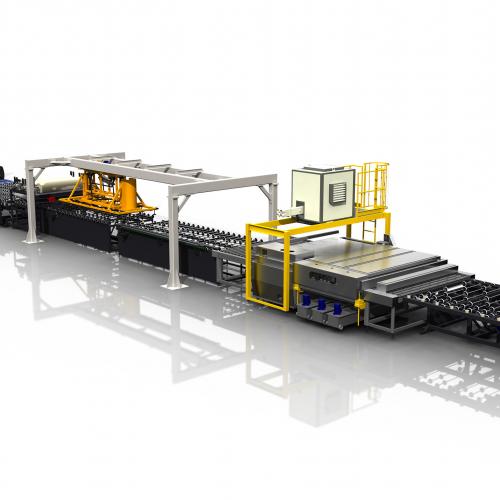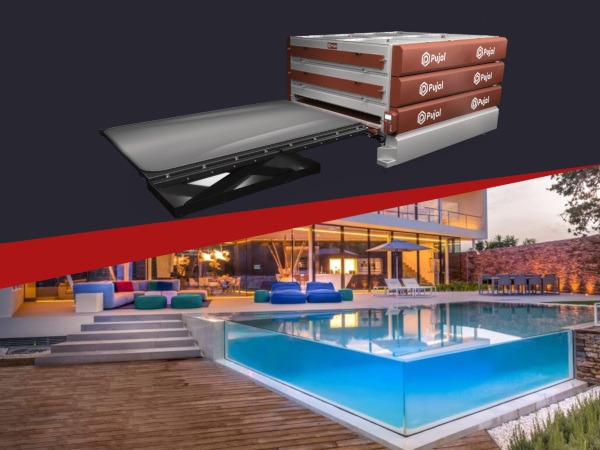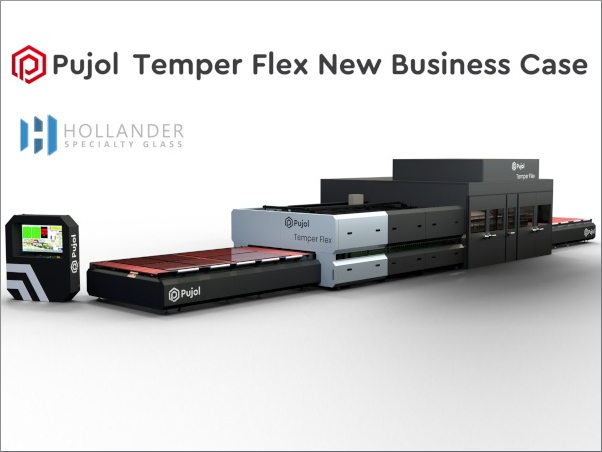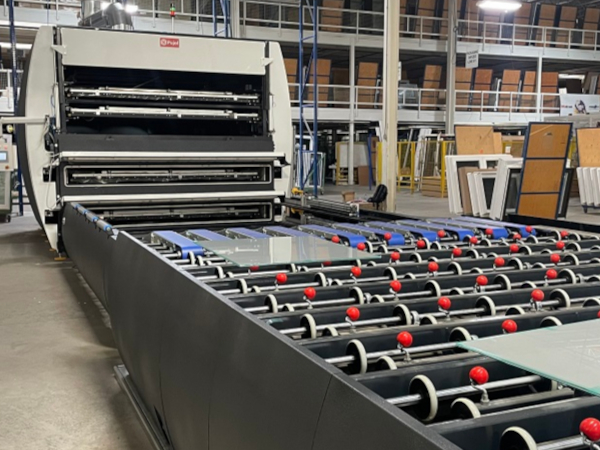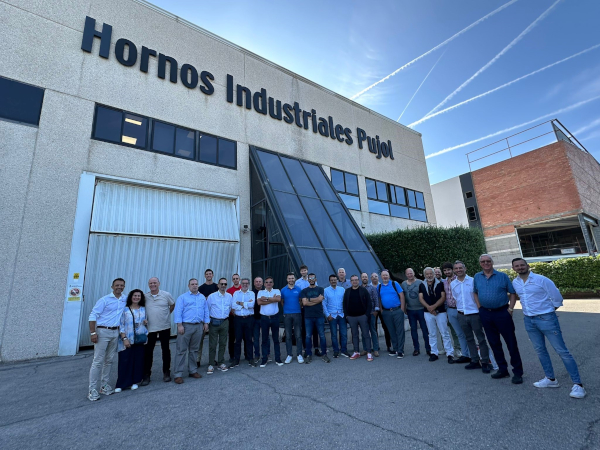Carrer del Pla, 108-110, Pol. Ind. El Pla
Sant Feliu de Llobregat 08980 Barcelona
Spain
Hornos Industriales Pujol

Find us on:
Founded in 1911 and managed by the fourth generation of the Pujol family, the 5,000 m2 Hornos Industriales Pujol plant is located in Sant Feliu de Llobregat, Catalonia, Spain. It centres its activity on the manufacture of ovens and machinery primarily for the glass, ceramics, metallurgical, and chemical sectors. In the last 20 years it has become an international specialist in the production EVA glass laminating ovens.
Hornos Industriales Pujol is the only manufacturer in the world that has developed an oven capable of laminating PVB without a climate chamber or an autoclave, whilst offering short curing cycles for architectural EVA. This translates into a 40% reduction in the cost of machinery and cost per unit produced.
Our Mission
To constantly develop heat treatment technologies whatever their application; to create technological leadership.
Our Vision
Constant innovation, improvement, and optimisation.
Our Values
Passion, responsibility, commitment and the capacity to adapt to a changing world and transformation are our main hallmarks.
Products
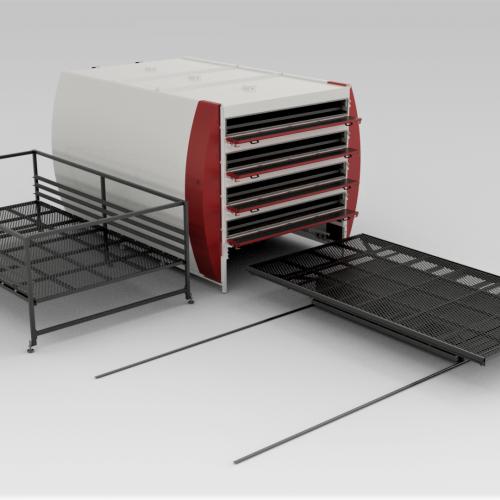
LAM-PRO
LAM-PRO is an oven designed to laminate glass which features high performance at a low cost.
Other advantages of LAM-PRO are:
- Uniform temperature.
- Planimetric system.
- Rapid work cycles.
- Flexibility in programming.
- Ergonomics.
- Process repeatability.
- Process and quality control: Pujol e-Connect.
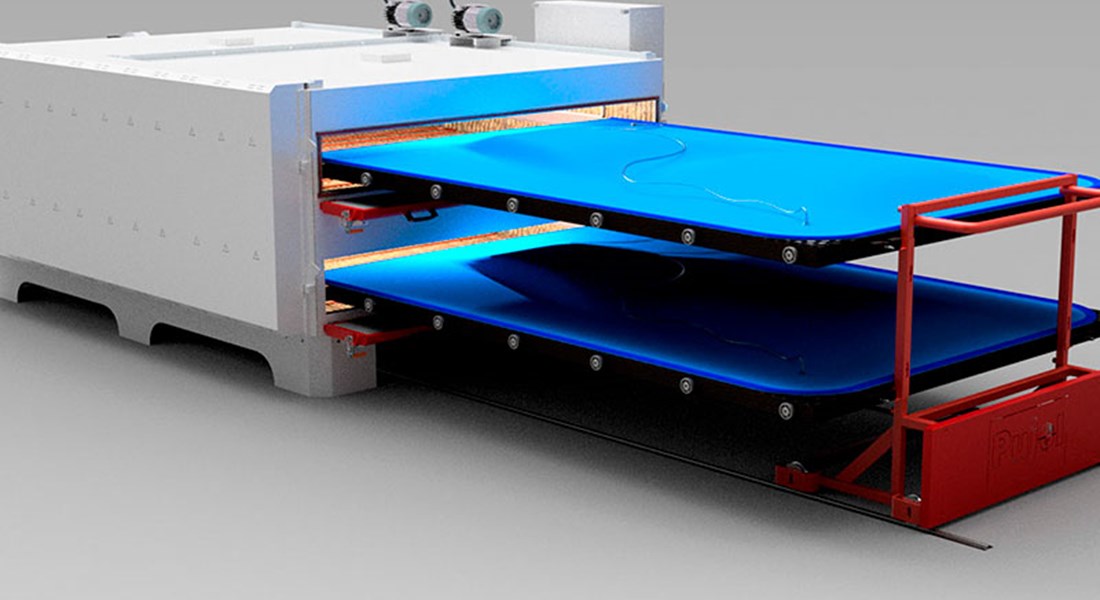
Click HERE for more information.
LAM-PRO TOP
The LAM-PRO Top is a high-performance glass laminating oven whose independent chambers exponentially increases the oven’s productivity and flexibility.
Other advantages of the LAM-PRO TOP are:
- Flexibility.
- Productivity.
- Variable control software.
- Uniform temperature.
- Ergonomic.
- ECO friendly.
- Process and quality control: Pujol e-Connect.
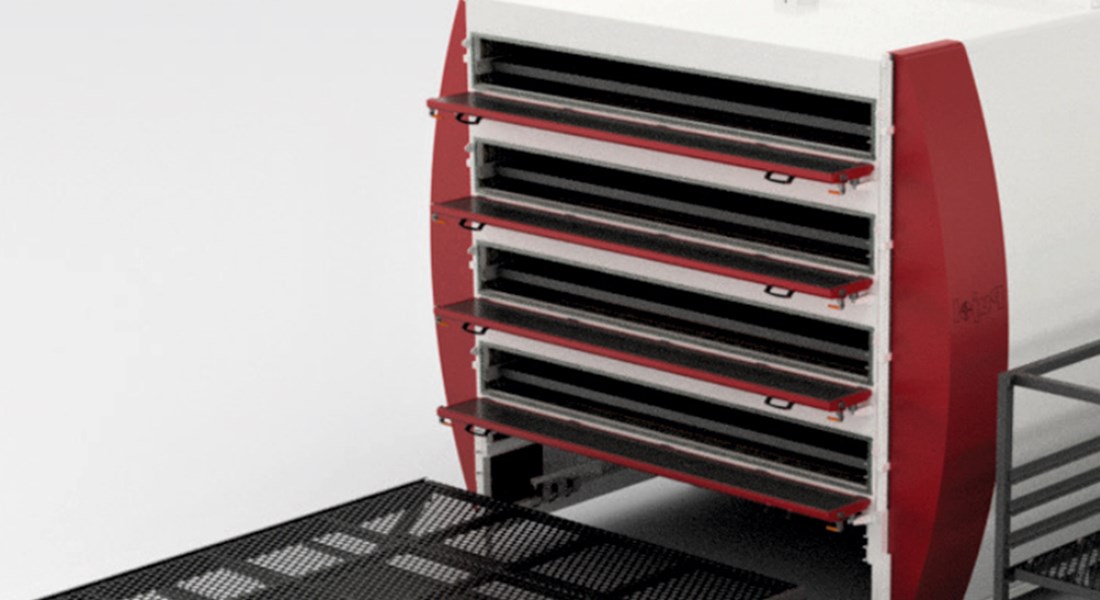
Click HERE for more information.
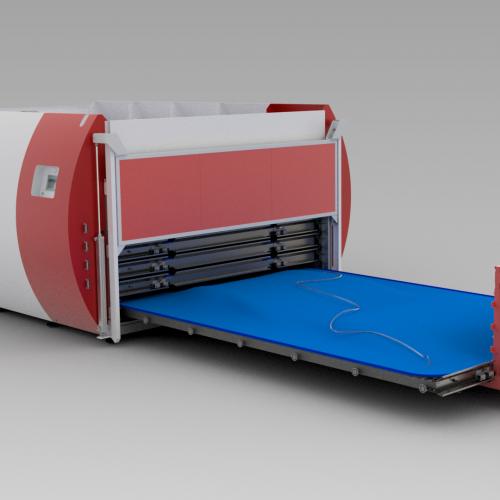
Other advantages of the HLH are:
- Productivity.
- Variable control software.
- Uniform temperature.
- Ergonomic.
- ECO friendly.
- Process and quality control: Pujol e-Connect.
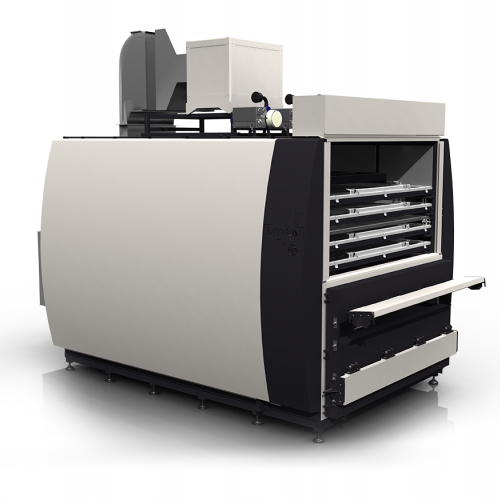
The main advantages of the Pujol 100 PVB + system are:
- Lamination of PVB/EVA/ionoplast interlayers (SGP).
- Humidity and temperature control is not required for either storage or treatment.
- It does not require a pre-laminate line, so a pre-oven or calender system is not necessary.
- It does not require a high energy-consuming compressor.
- There is no risk of explosion, something that could occur when using an autoclave.
- Cost reduction owing to greater energy efficiency, up to 70% when compared to traditional autoclave systems.
- Fixed energy costs independent of production volume.
- Up to 40 mm thickness in a single piece or in several independent compositions on a full tray and up to 60mm in smaller sheets of glass.
- A system that ensures high temperature uniformity using plates that radiate heat above and below the glass surface.
- Requires less plant space.
- Optimises process cycle time. While half is being processed in the oven, the other half is unloaded and the next cycle is loaded.
- High production volumes with minimal personnel.
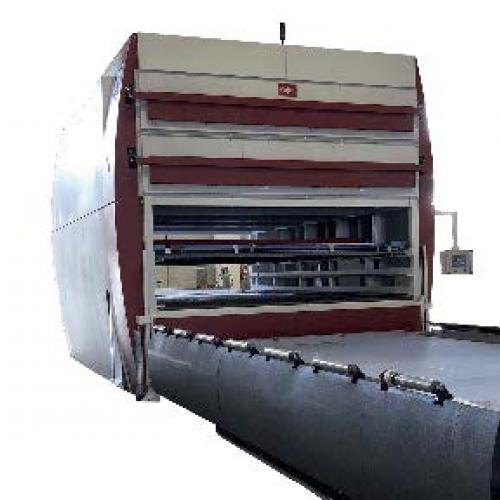
Other advantages of the Pujol 100 Continuous Oven are:
- Its one-of-a-kind system includes three autonomous and controlled stages in independent chambers, under vacuum control:
Pre-Vacuum + Curing + Cooling
- Production rates that start at 19 minutes.
- Temperature uniformity through radiation + convection.
- Greater flexibility thanks to its system of independent chambers.
- Designed to reduce space used as it offers continuous production and vertical operation.
- Fully automatic stage change.
- Operator only needed to unload laminated glass from tray to rack.
- Automatic opening and closing of vacuum bags.
- Automatic vacuum connection for each tray.
- Remote process control and full traceability.
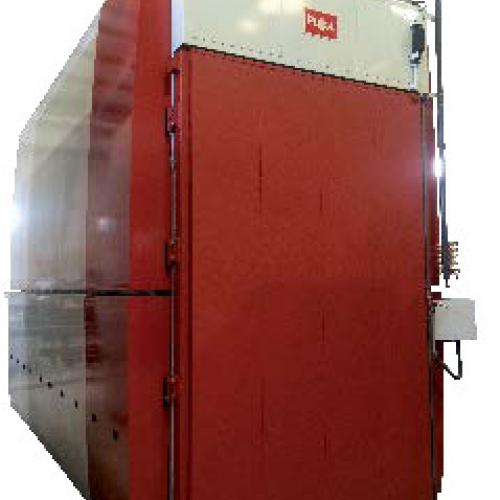
HST-L
HST-L is an oven designed by Hornos Pujol for glass lamination and heat soak testing.
Heat soak testing involves an accelerated ageing of the glass that indicates the presence of nickel sulphide in its composition. It is the only process certified worldwide to meet European Standard EN 14179-1 09/2005.
The main advantages of the HST-L are:
- Vertical HST treatment.
- Prevents spontaneous breakage of tempered glass due to nickel sulphide impurities.
- Horizontal lamination with Evalam in a silicone bag.
- Vertical lamination with Evalam in a single-use bag.
- ‘V’ shaped vertical convection systems.
- Superb temperature uniformity in the glass.
- Software offering quality control and traceability of the process.
- Single door lock.
- Multi-chamber option.
- Process and quality control: Pujol e-Connect
Click HERE for more information.
HST-V
HST-L is an oven designed by Hornos Pujol for glass lamination and heat soak testing.
Heat soak testing involves an accelerated ageing of the glass that indicates the presence of nickel sulphide in its composition. It is the only process certified worldwide to meet European Standard EN 14179-1 09/2005.
The main advantages of the HST-L are:
- Superb temperature uniformity in the glass.
- Software offering quality control and traceability of the process.
- Single door lock.
- Multi-chamber option.
- Process and quality control: Pujol e-Connect
Click HERE for more information.
HST spacers
These allow hot air to circulate during the heat soak testing process, and can be used when working with different glass formats. Made with high temperature resistant material, which ensures the durability of the product.
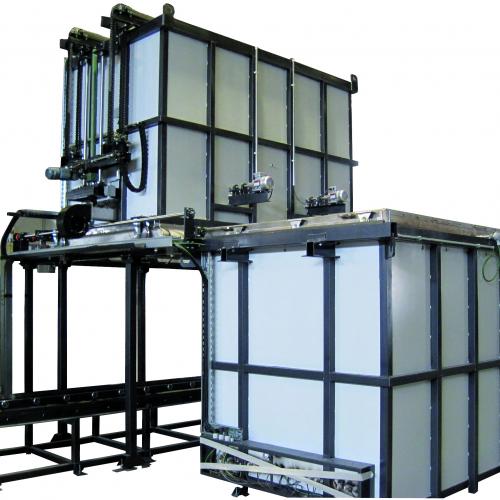
Glass treated using Hornos Pujol’s chemical tempering system offers significant advantages over heat-treated glass:
- These include: absolute transparency without the waves that cause optical distortions or anisotropy appearing in the glass after its installation.
- Greater safety owing to the substantial increase in the mechanical properties of the material.
- Reduced structural or hardware costs: higher quality or performance due to the reduced thickness of the glass, but also due to its lightness.
- This reduces the cost of laminated glass due to its perfect planimetry. Minimises the number of layers to be laid, as well as the thickness of glass to be used.
- High flexural strength. Owing to its improved mechanical properties, it is able to better absorb the stresses produced by permanent and variable loads that are placed on it.
- Highly scratch resistant: the chemical change produced in the glass thanks to Hornos Industriales Pujol’s Pujol-TQ System composite provides it with greater hardness. This makes it much more difficult to scratch this glass.
Automatic line
Complete high production line for the automation of EVA and/or PVB laminated glass production. This reduces production costs and increases laminated glass quality through the automatic alignment of the glass without taping or effort on the part of the operator. By automating this process, less additional machinery is required and directly lowers the cost.
This type of plant is fully adapted to customer needs. Plant designs can be adjusted to suit the space according to factory layout.
This increases production of laminated glass and generates cost savings.
Semi-automatic Line
This is a manually moving and automatically adjusted line which improves the quality of the laminated glass owing to greater precision in the alignment of the two or three sheets of glass to be assembled.
The semi-automatic production line was designed to help the operator achieve accurate centring of the glass layers, thereby speeding up and facilitating this procedure.
The semi-automatic line consists of the following elements:
- 50x28 elevating table (optional) which inserts and removes trays containing glass sheets from the different oven levels.
- Centring table that uses conveyor bearing which help the operator position the glass to the centred position.
- Assembly tables that contain conical bearings.
- Mobile handling unit with a mobile structure on a guide-rail to facilitate manual movement. It is also equipped with an elevating device and suction cups to transport the glass.
- Manual cutter (3 positions). EVA roll holder (up to three rolls) which also allows manual cutting of EVA once it is placed on top of the glass.
- Light overhead crane. Structure with a handling unit to move the glass.
Manual line
This is a manual production line with easier placement of both sheets of glass and film cutting for perfect assembly.
It is manually adjustable, which means that some intervention is required on the part of the operator, although it facilitates the EVA laminating process. This means greater cost savings and improved quality of finished product.
Designed by the Hornos Pujol engineering team, this plant can fully adapt to the needs of the glass processor. Plant designs can be adjusted to suit the space according to factory layout.
White rooms
This room is fast becoming a necessity among professional glass processors. Its characteristics ensure hygienic conditions which in turn maximise the quality of the final laminated composite. A white room guarantees that the glass will not come into contact with dust after exiting the washing machine, which minimises the risk of inclusions.
This custom-built structure considers the characteristics of the manufacturing area and the placement of its machinery. This optimises available space and investment.
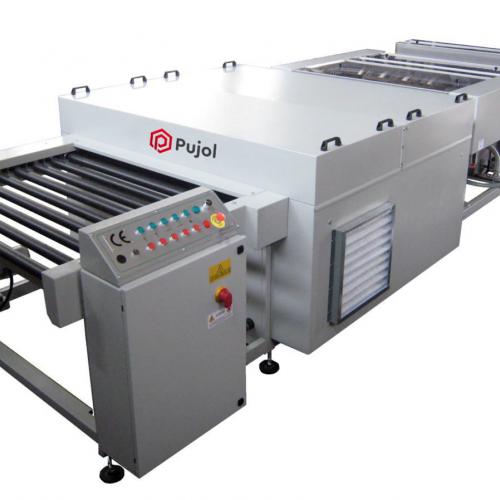
Other advantages of our washing machines:
- Perfect washing of layered laminated glass.
- Entry and exit lengths designed for comfortable operation.
- Optimisation of working height.
- Reverse movement system.
- Pre-wash-wash-dry function.
- Quick cleaning.
- Automatic glass thickness sensor.
- Reverse osmosis water demineralizer.
- Easy to maintain and inspect.
- European-made.
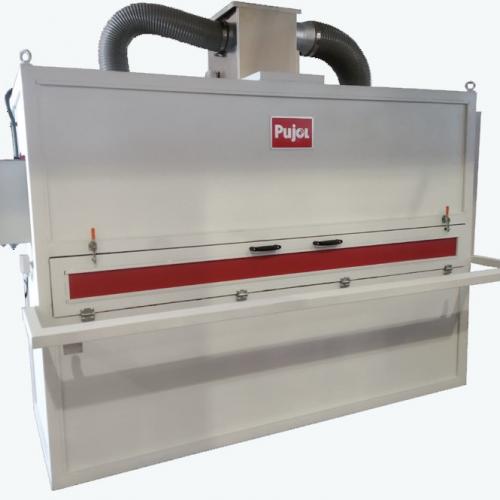
Electric roll holder with guided cutter
Climate box
Electric cutter
Vacuum system with silicone bags
Backlit horizontal assembly table with holder and electric cutter
Glass + EVA assembly set includes:
- Evalam 1P or 3P holder / support roll(s) with electric disc cutter.
- Backlit assembly table with bearings.
- Equipped with electrical sockets for auxiliary equipment.
- Available in two sizes.
Electric roll holder with guided cutter
Electric 1P or 3P EVA holder / support roll(s) with electric disc cutter.
Climate box
- This climate box was designed by Hornos Pujol for the conditioned storage of special PVB films for laminating ovens using vacuum technology.
- With this design, rolls of PVB film can be loaded effortlessly through the hinged doors at the rear.
- It includes machinery with a disc cutter for easy cutting of the PVB film.
- Equipped with humidity and temperature control systems that guarantee optimal storage conditions.
Electric cutter
Electric EVA cutter to make cutting easy for lamination workers.
Vacuum system with silicone bags
Vacuum system with silicone closure
Silicone bag that withstands laminating temperatures. Its main function is to hold the sheets of glass during lamination; it features an omega (Ω) shaped silicone closure to ensure quick, simple and effective closure of the vacuum bag.
Teflon mesh
Graph-ruled Teflon blanket which allows air to flow freely outside the vacuum bag. Teflon’s non-stick properties means that any EVA leaks appearing during the laminating process will be very easy to clean.

